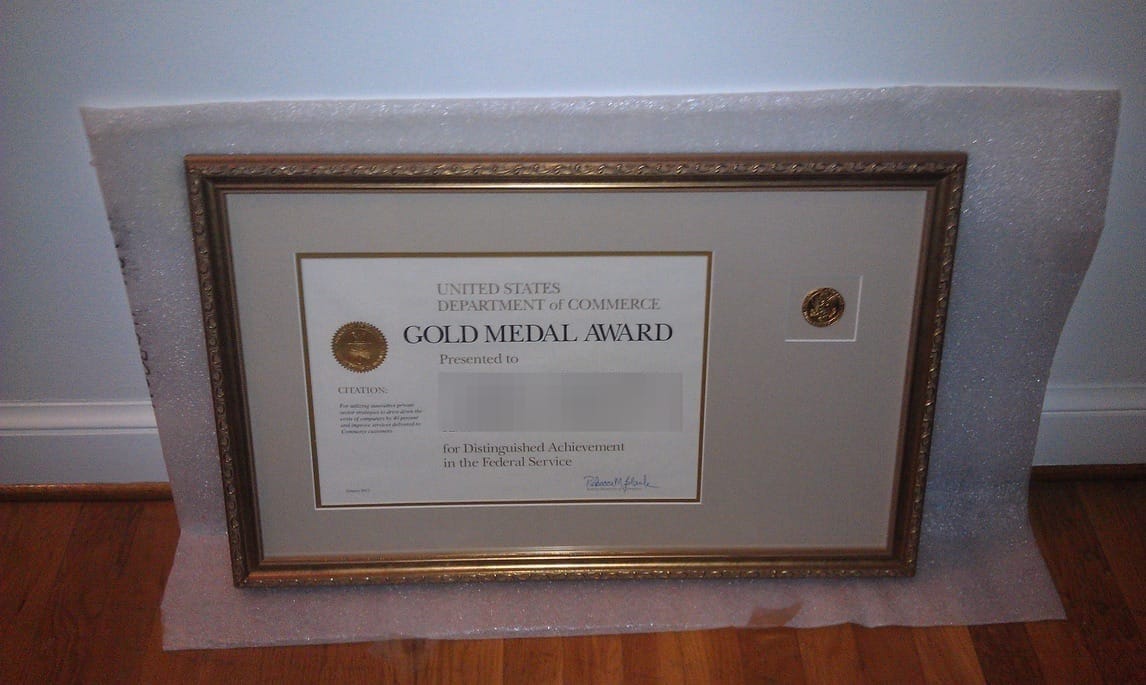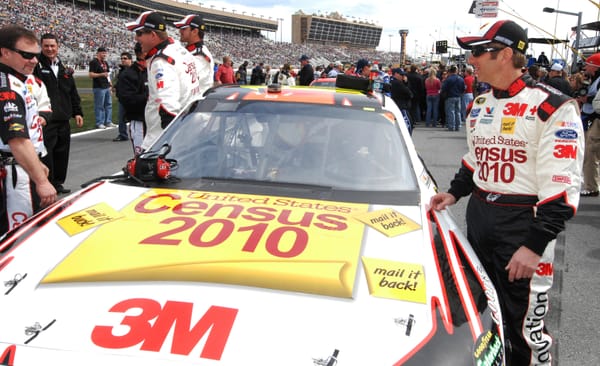The Agony and Ecstacy of the U.S. Government's Relationship with Apple's iPhone, Part 3

The Search for Apple Sellers and Buyers Gets Weird...
All thoughts, opinions, and other words here are exclusively the personal opinions of the author and do not express any official position, statement, or other communication from or on the behalf of the U.S. government. This is a work of fiction. Any resemblance to actual persons, living or dead or actual events is purely coincidental.
At this point, you may be asking exactly why a 29 year old, GS-9 who just started with the government is dealing with something that seems so far above their pay grade.
By comparison, a GS-15 is equivalent to a Colonel in the Army, which is just below a General, or being a Captain in the Navy, which is just below an Admiral. When "civic tech" started landing in government through digital service teams like USDS, the new hires were often brought in as GS-15's because of the pay disparity between government and the real world. This became problematic for the "civic tech play" when some 20 year old would show up at a meeting earning more than someone who'd been in the grind for a decade or more and was only a GS-13.
DOGE ended up doing the same thing, but only after proudly announcing they'd be doing this all–whatever it is they're doing–for free. I'm guessing they discovered one of the laws that Congress really cares about called the Anti-Deficiency Act. Amongst other things, it forbids the government from volunteer services (fiscal law).
Every agency culture is different, but civil service is very prone to what I call an "Elizabethan Court" mentality. Politicals are royals, SES's are lords and ladies, and GS 15's can sometimes rise to knight of the realm status. But if you're under a GS-13 you're basically a persona non grata.
Being a GS-9 surrounded by 15's and higher feels a bit like a Dickensian street urchin addressing the Queen of England.
There were two reasons the Queen would grant me an audience, so to speak.
First, no one else wanted to do the actual work or take the risk of holding the bag if it went south (a common theme across big government projects which can often be death marches). So they had to talk to me.

Second, I had just benefitted from pulling off a big win for the Department as a whole. It gave me a lot of street cred and wide latitude that I wouldn't normally have had operationally. So they actually wanted to talk to me. I was a "fixer."
Commerce doesn't have an operational acquisition function just policy folks. That means whenever it wants to pursue some political initiative, which is almost always around contracting, it looks for volunteers at one of its components (who get the honor of adding that highly sensitive political effort to their existing workloads).
My CAO, to gain political capital himself, volunteered his Census division to do some big contract initiatives for the Department. Because I was his new hire, that meant I got voluntold to do all of the work.
Before DOGE destruction, the typical acquisition office in government is always at least 25% understaffed compared to their work load. So dump the complicated, politically risky stuff on the new guy without an existing portfolio.
Remember, everything's computer. And Commerce needed cheaper computer.
So, I quasi-invented a new contract instrument using a loophole–a part of the FAR that was silent about the mechanics I was using. I'd refine this over several years and iterations. Eventually, I named it an Enterprise Solution Framework (ESF) because government has to feel special.
I wasn't sure the ESF was entirely legal, because there'd been no settled case law over it. But a few years later someone tried to copy it and screwed it up. So they got sued.
Then the Government Accountability Office (GAO), a legislative agency that also acts as an administrative law judge for contracting lawsuits filed by contractors against executive branch agencies, ruled that if you created an ESF in exactly the way I created it, then it was legal.
ooOOOoooo Acquisition Alchemist oooOOOooooo.
For saving the U.S. Government $200 million dollars, I received a performance bonus of $938 dollars that year in a lump sum payment.
I also got a Gold Medal (the highest award you can get at a Cabinet agency). It's very nice and I have no idea where to put it (because I don't want to look at it for the involuntary memories). Usually it's in a closet, especially now that I don't have a government office (I had an actual office for the first time for about 6 months c'est la vie).
More importantly, I got to know lots of people across Commerce, especially senior leaders.

I really fell in love with NIST, who did all of the actual technical advising on our projects, but only one person from NIST got added to the medal "team."
But we did buy the whole NIST team beers at "NIST North"–a brewery located just outside of the NIST campus in Gaithersburg, Maryland.
Fun fact, did you know that NIST sells "absolutely pure" items in its catalog that only contain that thing, like peanut butter for $1200 a jar? Literally just and only peanut butter. It contains no other ingredients at significant values because you have to have a baseline if you care about standards.
They also had a security guard blow up a lab trying to cook meth once.
But as I was working on projects like this, I still had to deal with these damn Chinese-made iPhones.
I started my "market research" with the companies who had sold stuff to the war college, the Air Force, etc. The small buys. These were all done through "resellers."
When I played dumb on my calls to those resellers, they were very insistent they could only sell up to the WTO GPA (although none of them would use that term, they would just say we can only sell up to $200K).
The reason that they were all hedging like drug dealers caught very obviously selling heroine on a corner in The Wire's version of Baltimore, is because of Congress. Again.
One of the many laws passed to prevent actual waste, fraud, and abuse–not the DOGE soundbyte that is anything but–Congress passed a law called The False Claims Act (this is specifically for fraud and abuse).
The False Claims Act applies to any and all statements with a material effect on the money that leaves the government's hands to go into a contractor bank account, like a reseller. If the contractor/reseller/manufacturer lies to the government about something in a contract, the FCA ensures that they are legally "screwed."
The FCA comes with treble damages for each instance of the "false claim," which is a fancy legal way of saying whatever damages the government incurs from the contractor fraud, that amount gets multiplied by 3 for each instance. So say that a reseller said a computer was TAA compliant and sold 3,000 units at $1,000 each. The FCA damages would be 3,000 times $1,000 times 3.
This can really add up when government buys computer or software.
When Oracle violated the FCA and incurred one the biggest fines in Department of Justice history over years of fraud and lost their ability to directly sell to the government, it was the treble damages that made the dollar amount so high.
With the resellers getting me nowhere, I decided to go straight to the source.
My first stop was GSA's Schedule program, because Apple still had a GSA Schedule at the time.
GSA was created under the Truman administration mainly for property management and surplus supplies from WW2. The Schedule Program allegedly came about because, and I'm not kidding here, the powers that be thought the government needed its own version of the Sears-Roebuck catalog. It used to be a giant paper catalog you could get that was several inches thick, now it's a bad "portal."
Sears was the original Amazon.com, and had they not made a bunch of strategic blunders Amazon wouldn't exist today.
Government Sears, GSA Schedule, has stuff that is particular to government needs–like $15,000 pre-trained explosive K9 unit dogs.

The way the government Sears catalog works is that everything gets grouped into different categories. Like placed with like. At the time, Information Technology Schedule Number 70 (IT 70) was where you went to get hardware, software and professional services for computer.
Every manufacturer and reseller authorized to sell to the government through GSA's catalogs, which were supposed to be "pre-vetted" by GSA to make it easier for their agency customers. Buyers from somewhere like Commerce could just focus on quantity and price, in theory, knowing GSA took care of the rest of the stuff like making sure that all contractors followed FAR 52.226-8 and had a policy that discouraged texting while driving (thanks Congress).
Unfortunately, GSA has structured the schedules program as a literal moral hazard like back when the Continental Congress used to buy stuff (seriously). In the late 1700's and early 1800's, Congress would buy things for the government through family owned shipping companies (the big American corporations of the era). Those companies would get "paid" by a percentage fee of the total amount charged to the government. Eventually Congress, without even having computer which is impressive, noticed that the total dollar amount they were paying kept steadily rising for the same amount of stuff (because it meant more money in fees for those shipping companies).
Today, that is still how GSA makes money for their agency's needs like bathtub shrimp. It has an "Industrial Funding Fee" on every purchase–a .75% charge on every dollar with no cap (this then gets put into a s̶l̶u̶s̶h̶ f̶u̶n̶d̶ centralized GSA account called the Acquisition Services Fund that's usually got tens of billions of dollars in it).
I've criticized GSA for this privately and publicly during my entire government career–even directly to the highest levels of GSA leadership across multiple administrations. You know, because it's a textbook example of moral hazard and it shows (we'll get there).
Anyway, unlike everyone else in government's Sears catalog, Apple had zero products listed. Nothing. I had never seen anything like it. The reason? There's a minimum and maximum order amount in dollars. The maximum is over well over the WTO GPA annual threshold, so they can't add any of their products. But they had a holdover catalog account from when they did have some things that were TAA compliant (it'd disappear later).
So I called the number for the official Apple representative to GSA.

Me: Hi! Is this Steve Jobs?! (not their real name, but I also did call the person who answered the phone Steve Jobs).
Steve: (Laughs with a sales voice in such soft dulcet tones that it's clear they make well over $300K+ a year in sales–this is a distinct tone you learn to recognize–I call it "Yacht Money." Also remember this was the "good" era of BigTech when mottos were pure, salaries with perks were beyond luxurious, and it was the societal signal of having "made it to the top").
Steve: That is too funny how can I help you?
Me: I was hoping you could help me understand why your GSA schedule is blank? I'm at the Department of Commerce and my boss tasked me with buying some iPhones and maybe some iPads...It's just confused because I went to your schedule and there was nothing listed in eLibrary?
*Sidenote, the first time my direct supervisor–my branch chief–heard me use my "research voice" from his office he walked out and stared at me in disbelief. I LARP but only at work.
Steve: (Spends the next 10 minutes in corporate tech speak without actually saying anything. But translating it – he's admitting it's hella illegal to sell).
Me: Oh, so I can't buy it on schedule? What do you suggest?
Steve: We support a lot of customer needs through their purchase cards.
Now I didn't tell Steve I was trying to buy 500,000+ units. Because if I had, then this would have been a very different conversation. There was also no way I was going to be able to buy 500,000+ units on a purchase card–again because of Congress.
The purchase card program, which the House Oversight just launched an investigation into because of potential billionaire criming to have free government money go to their startups instead of Big Plastic I'm sure innocently looking for just a little more money, is the government's credit card. For the sake of operational efficiency, the government essentially trains, certifies, and then monitors the shit out of people with a government credit card.
Like government swag, see Part 2, the purchase card is a very useful program that gets a lot of scrutiny and is an easy target for a soundbyte. To minimize the potential harm, there's a dollar limit on the credit cards–called the Micropurchase Threshold. At the time, it was $3500.
Also at the time, my CAO was still dealing with an investigation over a purchase card holder during the last Decennial who did something I call the Detroit Swipe method (because it happened in Detroit).
Someone in a Decennial field operation didn't want to deal with the paperwork and effort involved in working with an 1102 to properly purchase about $3 million dollars of storage space.
So instead, he told the owner of the storage facility to just swipe his government purchase card until it got to $3 million. That's alot of swipes. I'm surprised that, one, it worked, and, two, that the card didn't melt.
The Detroit Swipe is illegal as hell because, again, of Congress.
Congress has a rule called bona fide need (fiscal law). The way bona fide need works is that you have to have a legitimate purpose to spend government money, usually meaning it's authorized by Congress.
By the way, Congressionally approved and properly appropriated funding is not fraud, waste, or abuse just because you disagree with what Congress decided to spend money on...like USAID or really everything other than guns, ammo, or yourself at this point.
But you also have to spend the money for that bona fide need in a single financial transaction. Assume your bona fide need costs $1 million dollars. To spend a $1 million dollars legally, again because of Congress, an 1102 has to:
- Properly document it (can easily hundreds of pages if done badly),
- Have all of that documentation scrutinized and reviewed by legal and everyone else under the sun and your cousin (can easily take weeks, months, or even years),
- Publicize and compete it amongst potential contractors interested in supplying that need (again more weeks, months, or years),
- Evaluate the different offers received based on what you asked for (some agencies can take months or even years for this again–I'm serious), and
- Finally awarding it and getting whatever you needed years ago.
That is if you don't get sued for screwing up any of those steps in any way. Or there's a loophole or exception. But if you succeed–and you usually do 98 and 3/4 percent guaranteed–the 1102 gets to use their warrant and obligate the government to that $1 million.
Then, depending on the contract mechanics, the government will either pay that full amount at the start of the contract or at some other agreed upon distribution schedule, usually monthly invoices (this is called expenditure in fiscal law).
I once chatted with a contractor who told me that, after our meeting, they had to go straight to the Pentagon because they were having a contract award kick-off. But the contractor had bad news for the Pentagon.
Because it took the government 3 years to award that contract, the company had actually ended that line of their business. So they couldn't actually work on the government contract they had just won.

The Detroit Swipe is what's called a split purchase – and it's illegal. So that wasn't going to work.
Steve: We're also working with the Small Business Administration to get an NAICS class waiver.
Me: What?
Steve: A class waiver. We think it would be in the best interests of our government customers, especially at DoD, if we got a NAICS exemption for the category.
The irony of an American company saying it would be in the DoD's best interests to send money to China was not lost on me. Especially when we've been predicting or posturing that we'd end up in World War 3.
The North American Industrial Classification System (NAICS) is a Census product. Every industry is categorized, defined, and provided a 6 digit numerical designation.
Besides Census surveys and research, the government uses NAICS codes for two purposes:
- Every contract action has to have a NAICS code assigned to it that best fits the description for what the government is spending money on in order to try and track it (this gets real fun when everything's computer).
- The Small Business Administration (SBA) uses NAICS codes to determine whether a business is "small" or "other than small" (meaning large) for the purposes of government loans and socioeconomic programs (again because of Congress).
A "class waiver" means that the U.S. Government, through the SBA, has determined there's no point anymore. Anything with a class waiver never was, never shall be, or is no longer something that can be "Made in America." So any purchase with that NAICS code designation gets exempted from complying with the Trade Agreement Act (TAA) because it is only available from foreign sources. Agencies can buy as much of it as they want. America gives up.

Me: You want to ask the SBA to say America can't make phones or computers in America anymore?
Steve: No, no, no. Apple ensures that consumers get to choose for themselves what they want and the globalized supply chain enables us to deliver the innovative products and services that our cutting edge technology provides in a cost effective manner and reflects this reality.
Me: (feeling ill) Ok well...Steve thank you so much for this information, this has been a big help! I'll let them know we can use purchase cards!
After this call, I curled up with my souveneir replica of the Declaration of Independence from Colonial Williamsburg, a miniature America flag I kept on my desk (sadly made in China), and a boxed set of the entire West Wing series then wept for 15 minutes under my cubicle desk over the death of the government that once landed on the moon.
Then I went to talk to my CAO.
Me: So Apple says just use the Detroit Swipe.
CAO: (chuckles). Right.
Me: (stares in silent seriousness)
CAO: Oh you're serious. (I had a bit of a reputation as a "kidder").
Me: Yeah, I just talked to Steve Jobs he said put it on the pcard. But maybe SBA is going to let them off the hook?
CAO: We're not using cards, keep looking.
Amazingly, right around this time, the press reported that the White House was moving to iPhones (Obama hated his BlackBerry and would talk about it openly for years–and how he too wanted an iPhone).
So I called the White House contracting office, again this is back when people actually answered phone calls.
I spoke with the 1102 who was buying office supplies and other things for the Executive Office of the President (EOP) and who would, ironically, end up working later at the USDS.
Their boss, the head of contracting for the Executive Office of the President (EOP), was also on the call.
Me: Hi there, this is Bud Jenkins calling from Commerce. I saw reporting that you were buying iPhones over there at EOP. How are you doing that? Because (explains BAA and TAA).
The White House 1102 and their boss: long awkward silence...
White House 1102's boss (who is also on the call): (finally in a relieved voice knowing this would be a problem) We bought under the limit...we bought under the limit. Does Teddy know about this?
Teddy (not their real name) was my CAO's boss at Commerce, the Senior Procurement Executive (SPE) for the Department as a whole. He sat on the Chief Acquisition Officer's Council (CAO) and knew the head of EOP contracting well from their regular council meetings. And yes, Teddy knew because I told him and he said "Geez, that sounds tricky."
Years later, I would get into trouble at a CAO Council meeting for calling bullshit on an publicity stunt of a program that the deputy of the Office of Federal Procurement Policy (OFPP), also at the White House, was pushing as "innovative" and "useful" for 1102s when it was anything but. It was also stupidly insulting for anyone in the trenches actually buying stuff. But that's another story.
We talked for a little longer about the situation and sadly, Obama, had to settle for an Android "because of security reasons" but the whole Made in America thing never came up in any reporting about why he couldn't have it (some Androids were manufactured in TAA compliant countries, unlike iPhones).
So if the President of the United States couldn't get an iPhone, how was I supposed to get them just because someone way lower on the food chain was acting like a toddler instead of a leader?
Stay tuned for Part 4.



